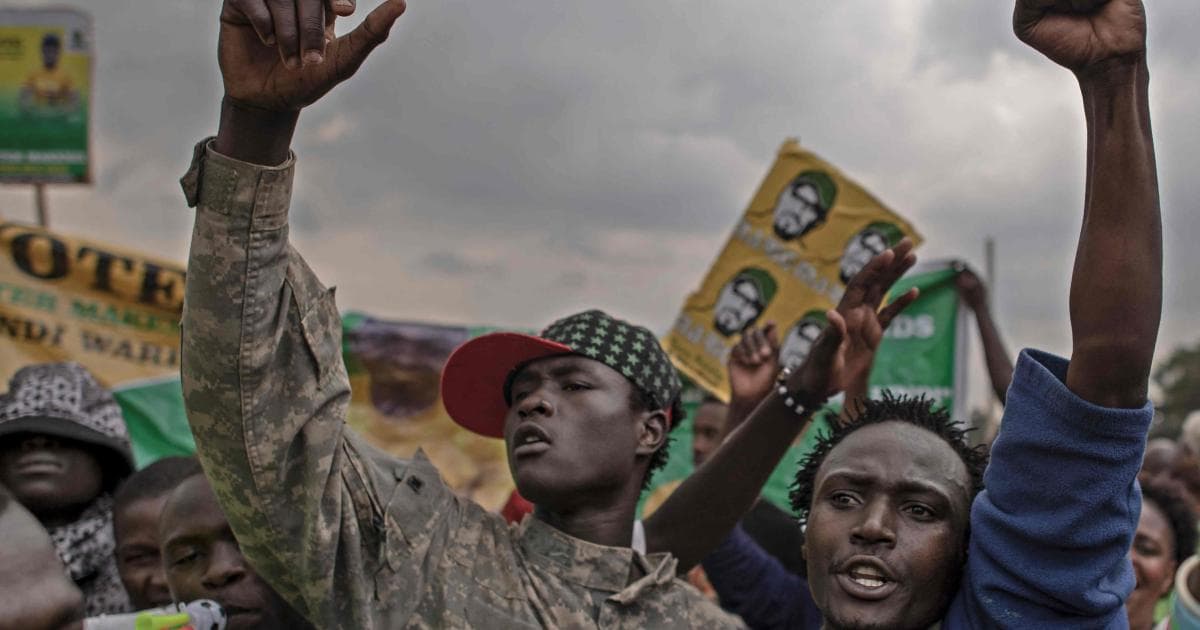We're loading the full news article for you. This includes the article content, images, author information, and related articles.
The suspension severs a key East African travel artery, raising urgent questions for Kenyan trade and regional stability as reports emerge of significant casualties and political turmoil in the neighbouring state.

Global airline Emirates confirmed on Thursday, October 30, 2025, that it was cancelling flights to and from Dar es Salaam’s Julius Nyerere International Airport (DAR) due to “ongoing civil unrest.” In a travel alert, the Dubai-based carrier specified that flights EK725 from Dubai and EK726 from Dar es Salaam on Friday, October 31, 2025, were cancelled, and passengers originating from other airports with a final destination of Dar es Salaam would not be accepted for travel until further notice. The airline stated it is closely monitoring the situation.
The decision by a major international carrier underscores the severity of the political crisis gripping Tanzania following the general election held on Wednesday, October 29, 2025. The United Nations has expressed deep concern over the violence, with Secretary-General Antonio Guterres calling for an impartial investigation into all allegations of excessive force by state security agents. The UN human rights office stated it had received credible reports of at least 10 fatalities, while Amnesty International reported receiving information of at least 100 people killed.
The unrest erupted after polls that critics and opposition parties have denounced as fundamentally flawed. President Samia Suluhu Hassan and the ruling Chama Cha Mapinduzi (CCM) party were widely expected to win after key opposition figures were sidelined. Tundu Lissu, leader of the main opposition party, CHADEMA, was previously jailed on treason charges, and his party was ultimately barred from the election. Protests broke out in major cities including Dar es Salaam, Mwanza, and Dodoma, with demonstrators clashing with security forces.
In response, the Tanzanian government has imposed a nationwide internet blackout and a nighttime curfew, severely hampering the flow of information. Foreign journalists have been largely barred from covering the events. Opposition party CHADEMA claimed on Friday, October 31, 2025, that as many as 700 people have been killed in the clashes, a figure that remains unverified by independent international bodies but points to a grave and deteriorating security situation. The government has dismissed these figures as “hugely exaggerated” but has not provided its own casualty numbers, describing the events as isolated incidents caused by “criminal elements.”
The escalating crisis in Tanzania presents significant economic and security implications for Kenya. Tanzania is a critical trading partner for Kenya within the East African Community (EAC), and the disruption to flights and cross-border movement threatens billions of shillings in trade. The Nairobi-Dar es Salaam air route is one of the busiest in the region, vital for business, tourism, and logistics.
In response to the turmoil, Kenya's Interior Principal Secretary, Raymond Omollo, announced on Thursday, October 30, 2025, that security has been heightened along all border points, including Namanga, Taveta, and Isebania, to prevent any spillover of violence. Omollo urged residents in border communities to remain calm and cooperate with security agencies. The instability could divert trade and transport logistics, potentially rerouting cargo through the Central Corridor from the Port of Dar es Salaam, though the current unrest makes this route less reliable.
The crisis also tests the diplomatic mechanisms of the EAC. The regional bloc, which sent an election observation mission to Tanzania, is under pressure to respond to the escalating violence and allegations of democratic backsliding. The Kenya Human Rights Network has already condemned the silence from the African Union and the EAC, stating that the events in Tanzania threaten the principles of the entire community. The situation remains highly volatile, with the flight cancellations serving as a clear signal that the international community is treating the political instability with the utmost seriousness.
Keep the conversation in one place—threads here stay linked to the story and in the forums.
Sign in to start a discussion
Start a conversation about this story and keep it linked here.
Other hot threads
E-sports and Gaming Community in Kenya
Active 9 months ago
The Role of Technology in Modern Agriculture (AgriTech)
Active 9 months ago
Popular Recreational Activities Across Counties
Active 9 months ago
Investing in Youth Sports Development Programs
Active 9 months ago
Key figures and persons of interest featured in this article